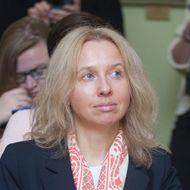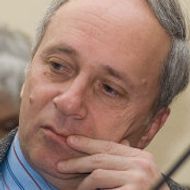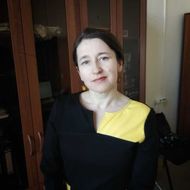- A
- A
- A
- ABC
- ABC
- ABC
- А
- А
- А
- А
- А
- HSE University
- Faculties
- Faculty of Humanities
- School of History
- Events
- The Russian Origins of Human Rights: a talk by Prof. Randall A. Poole
105066 Moscow, Staraya Basmannaya 21/4, building 3
Phone: +7 (495) 772 95 90 *22858
The HSE School of History was established in 2015 on the basis of the HSE faculty of history. The School's staff brings together leading scientists in various fields of historical knowledge who are widely known and respected in Russia and the international academic community. The School’s instructors are leading historians are authors of numerous books and articles, regular participants in major international scientific forums and research projects, and are also known as popularizers of historical knowledge. The HSE School of History actively cooperates with leading foreign universities and research centers, and organizes international scientific conferences, symposia, and colloquiums.
Strasbourg: Presses universitaires de Strasbourg, 2023.
Misiak M., Butovskaya M., Sorokowski P.
Food Quality and Preference. 2024. Vol. 114.
In bk.: Picturing Russian Empire. Oxford: Oxford University Press, 2024. Ch. 6. P. 66-73.
Kolesnik A., Rusanov A.
Working Papers of Humanities. WP. Издательский дом НИУ ВШЭ, 2021. No. 205.

The Russian Origins of Human Rights: a talk by Prof. Randall A. Poole
Abstract. Today, both the history and philosophical grounding of human rights are matters of fierce debate. One prominent figure in the debate is Samuel Moyn, professor of law and history at Harvard. In widely discussed books such as The Last Utopia: Human Rights in History (2010) and Christian Human Rights (2015), Moyn argues that universal human rights are a recent concept, dating from the 1940s, and specifically are a product of Catholic philosophy of that era. The Catholic thinker who reinvented human rights was Jacques Maritain. He was among the founders of the French philosophical movement known as personalism, which he fashioned into his own Christian (or ‘integral’) humanism. By 1942, he turned it into a robust defense of human rights. The Universal Declaration of Human Rights followed in 1948, and Maritain was one of its intellectual architects.
Decades before Maritain, another tradition of Christian personalism had already developed into a theory of human dignity and human rights. In this lecture Randall Poole will argue for the Russian origins of human rights, showing how Russian philosophers of the late nineteenth and early twentieth centuries combined Orthodox Christian personalism with Kantian idealism to produce a powerful defense of rights-based liberalism. After the Russian Revolution, this rich intellectual legacy was transmitted by Nikolai Berdiaev and the Russian philosophical emigration to interwar France, where it helped form the milieu in which Maritain’s thought took shape.
The langugage of both talk and discussion is English.
The seminar will take place at Staraya Basmannaya 24/4, building 3 («korpus L»), room L-308.
In case you need a temporary pass to the HSE building please contact the manager of the School of History Nadezhda Nekrasova via the email nvnekrasova@hse.ru.
- About
- About
- Key Figures & Facts
- Faculties & Departments
- International Partnerships
- Faculty & Staff
- HSE Buildings
- Public Enquiries
- Studies
- Admissions
- Programme Catalogue
- Undergraduate
- Graduate
- Exchange Programmes
- Summer University
- Summer Schools
- Semester in Moscow
- Business Internship
-
https://elearning.hse.ru/en/mooc/
Massive Open Online Courses
-
https://www.hse.ru/en/visual/
HSE Site for the Visually Impaired
-
http://5top100.com/
Russian Academic Excellence Project 5-100
- © HSE University 1993–2024 Contacts Copyright Privacy Policy Site Map
- Edit



